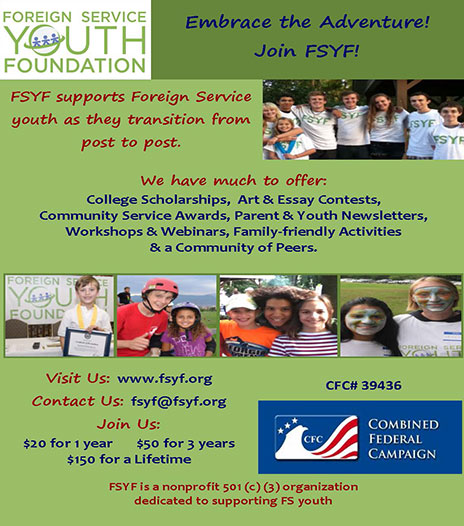The Human Touch
State VP Voice
BY ANGIE BRYAN

Bureaucracies aren’t known for compassion, flexibility or a commitment to do everything within reason to help their employees thrive. This is often the case even when some of the decision-makers are caring individuals who want to help—the bureaucracy just wears them down and makes it so hard to effect change that they eventually stop trying. (Don’t worry, I’m not there yet!)
This tendency can be exacerbated in an organization like the Foreign Service, which is characterized by three trends: it is highly competitive to enter, it is consistently ranked one of the best places to work and attrition remains low.
Under these conditions, managers can easily lull themselves into complacency and inertia, based on the assumption that the career is so prized and employees love their jobs so much that they will never leave, no matter how they are treated or how many personal sacrifices they must make.
To some extent that may be true—otherwise, attrition would be higher. But what about the unseen statistic, the number of employees who remain but become less engaged, less satisfied and more resentful?
We all know at least one colleague (or perhaps we are that colleague) who has struggled so much with the bureaucracy that, even when things are resolved favorably, they continue to experience a bitter aftertaste.
The employee who faces pressure from her office to return to work too soon after having a baby; the tandem couple who has to do one tour after another apart; the parent of a child with special needs who dreads bidding on overseas posts because of the bureaucratic hoops; the single parent who is in an essential position at a post that goes on drawdown; the LGBT employee who wants to serve in a country where his or her spouse would not be officially recognized; the single employee trying to navigate eldercare; the employee whose EFM spouse has been unable to find meaningful work for multiple tours—these individuals are assets into which the Foreign Service has invested a great deal of training and money.
It is heartbreaking to see and hear them agonize over how much more they can take, and whether it is worth it to stay with an organization that does not appear to value them. Part of the culture shift toward humanizing our bureaucracy involves leaders and managers recognizing our human needs outside of work in a way that makes us stronger and more engaged on the job.
Leaders can and should empower managers to take the most human interpretation of the rules, while still upholding the letter and spirit.
I’ve seen the department do a wonderful job with certain individual cases. Unfortunately, not everybody knows how to navigate the system to achieve those kinds of results, nor should they have to.
I’d like to see a Foreign Service where the leadership acknowledges that our people are our best asset and that disengaged, distracted, cynical employees will contribute far less. From the top, there needs to be clear instructions to “the bureaucracy” to work with people and find compassionate solutions, not to point reflexively to the FAM and say something isn’t possible, end of story.
While some regulations are government wide and cannot be changed unilaterally by the State Department, others are eligible for negotiation and revision, should policymakers deem the issue sufficiently important.
In some cases, revision isn’t necessary; a more flexible interpretation would do the trick. Leaders can and should empower managers to take the most human interpretation of the rules, while still upholding the letter and spirit.
It’s not enough, however, for policymakers to issue such declarations and then return to their daily tasks, assuming that everything will now change.
If they want the implementing offices to take action, they need to remain involved, send representatives to working group meetings, emphasize the need for creative solutions and outside-the-box thinking, ask for progress reports, engage when working-level employees cannot find a solution and constantly remind managers both here and abroad that the Foreign Service cannot achieve its important work without the full, loyal support of its employees.
We need to invest as much time into helping our employees thrive personally as we do to ensure they thrive professionally.
What a wonderful Foreign Service that would be.



